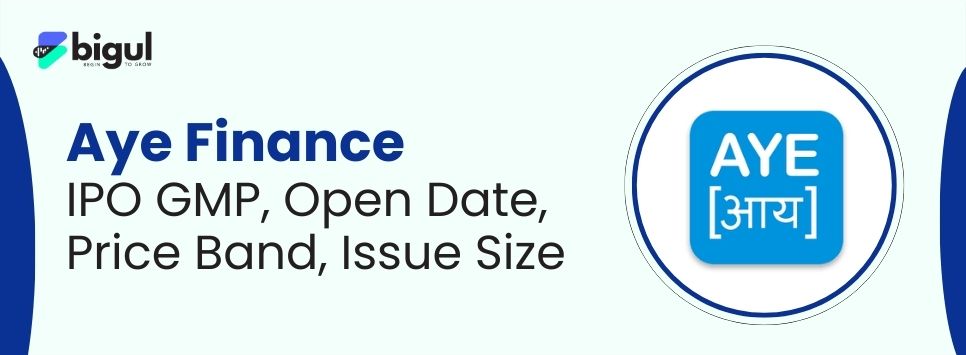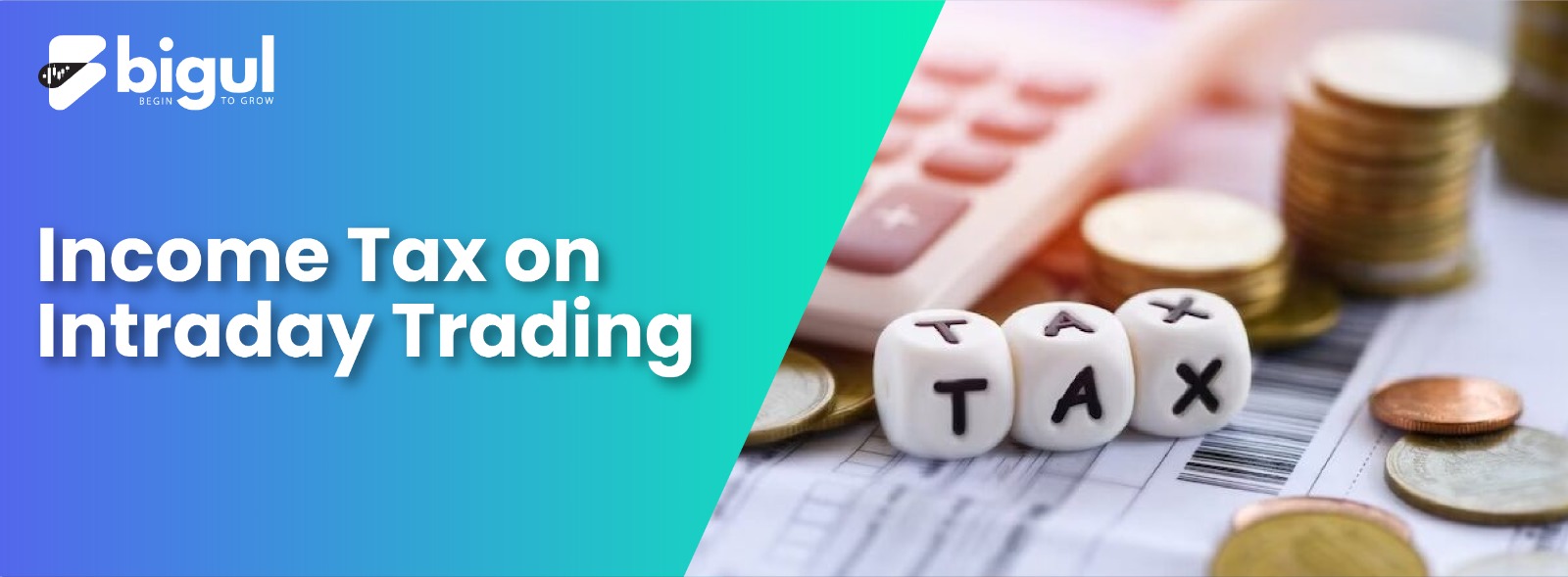Intraday trading, where you buy and sell financial stuff on the same day, is quite popular. People do this to make quick money from price changes during the day. But hold on, it’s not just about making money. When you do intraday dealing, you must also think about taxes.
Your intraday trading taxes depend on whether the government considers it a business or an investment. It’s like boxing your toys. Not following the guidelines could get you in trouble with the Indian Revenue Service.
Let’s explore intraday trading income tax and learn how to comply to prevent issues.
What is Intraday Trading?
Intraday trading is also known as day trading. It involves buying and selling financial assets like stocks, commodities, or currencies within the same trading day. Traders aim to profit from short-term price fluctuations, capitalising on small price movements. They typically make multiple trades throughout the day, seeking to benefit from market volatility. Intraday traders rely on technical analysis, charts, and real-time data to make quick decisions and minimise overnight risks. This trading style requires a deep understanding of market trends and risk management, as positions are closed before the trading day ends.
Tax Implications of Intraday Trading
Intraday traders must consider income tax implications. Intraday trading profits might represent business revenue or capital gains depending on trade frequency and kind. If the trading activity qualifies as a business, profits are taxed according to the applicable slab rates for businesses, allowing traders to claim deductions for related expenses. Alternatively, if it falls under capital gains, profits are subject to lower tax rates, and traders can leverage exemptions and deductions for long-term capital gains. Accurate record-keeping, including transaction dates, times, and prices, is crucial for intraday traders to compute tax liabilities correctly. Non-compliance with tax regulations may lead to penalties and legal consequences.
How do you calculate taxes on intraday trading profits?
Understanding Income Tax Department guidelines is necessary to calculate taxes on intraday trading gains in India. To compute intraday trading gains taxes, use this simplified guide:
- Determine Your Total Intraday Trading Profits
To calculate taxes on intraday trading profits in India, determine your total profit earned from all intraday trades during the financial year. This involves adding up the gains from selling stocks, derivatives, or other financial instruments you traded intraday. Subtract any trading expenses or losses from your gains to reach the net profit. This net profit is the figure you will use as the basis for computing your tax liability on your intraday trading activities. Accurate record-keeping is crucial for this step to ensure your account for all gains and losses correctly.
- Calculate Turnover
Calculating turnover in intraday trading involves adding up the total value of all your buy and sell transactions within a financial year. It’s crucial because it determines whether you must undergo a tax audit under section 44AB of the Income Tax Act. Turnover includes your profit or loss and the full value of all your trades, regardless of the outcome. This figure provides tax authorities insight into the scale of your trading activities and ensures compliance with tax regulations.
This can make accurate turnover calculation essential for intraday traders in India.
- Apply Tax Rate
In India, intraday trading profits are treated as speculative income and are subject to your applicable income tax slab rate. Here is the old tax regime for individuals below the age of 60:
- Up to Rs 2,50,000: Nil (No tax)
- Rs 2,50,001 to 5,00,000: 5%
- Rs 5,00,001 to 10,00,000: 20%
- Above Rs 10,00,000 lakhs: 30%
Slab Rates if Individuals opt for New Tax Regime:
| Taxable Income (INR) | Slab Rate |
| Up to 2,50,000 | NIL |
| 2,50,001 to 5,00,000 | 5% |
| 5,00,001 to 7,50,000 | 10% |
| 7,50,001 to 10,00,000 | 15% |
| 10,00,001 to 12,50,000 | 20% |
| 12,50,001 to 15,00,000 | 25% |
| More than 15,00,000 | 30% |
Additionally, a 4% Health and Education Cess (HEC) is applicable to the total tax calculated.
- File Your Income Tax Return
After calculating your intraday trading profits, you must report this income to the Income Tax Department by filing an Income Tax Return before the specified due date, usually July 31st of the assessment year. Filing your ITR accurately is crucial because it ensures you fulfil your tax obligations and avoid legal issues. This documentation provides a transparent record of your income and tax payments, essential in case of scrutiny or audit by tax authorities. Failing to file your ITR can lead to penalties and legal consequences, so timely and accurate reporting is vital.
- Consider Tax Deductions
Explore opportunities to reduce your taxable income through deductions allowed by the Indian Income Tax Act. For instance, under Section 80C, investments in tax-saving instruments like the Public Provident Fund (PPF) and Equity-Linked Savings Schemes (ELSS) can be deducted from your taxable income. Similarly, medical insurance premiums under Section 80D and home loan interest under Section 80EE can also lower your tax liability. These deductions can help optimise your tax liability while complying with Indian tax laws.
Intraday Trading: Business or Speculative Income?
Intraday trading in India is a dynamic activity where you buy and sell financial assets within the same day, aiming to capitalise on short-term market fluctuations. This form of trading is classified as speculative business income or just business income based on factors like your trading frequency, objectives, and the nature of your trades.
Here’s a breakdown of how it works:
- Business income:Your trading activities, characterised by frequent transactions with profit-making intent, are considered a business. Profits from these trades are taxed as business income at the applicable tax rates. You can also claim deductions for trade-related expenses.
- Speculative Business Income:In the context of intraday trading, income that arises from frequent and substantial trade activities is categorised as Speculative Business Income as per the Income Tax Act. This income is treated differently from Business Income and is subject to different tax rates. Interestingly, speculative business losses from intraday trading can only be offset against speculative business income and not against other sources of income.
Taxation of Intraday Trading in Different Instruments
It is important to know that the taxation of intraday trading can vary depending on the type of financial instruments you trade. Here, we explore the taxation aspects of intraday trading in different instruments:
- Equities and Equity Derivatives: Equity refers to individual stocks or company shares traded on stock exchanges like the NSE and BSE for intraday trading. However, equity derivatives like futures and options are based on underlying equities. Trading equities or individual stocks on exchanges like the NSE and BSE? Your focus here is on daily price movements. India taxes the sale and purchase of securities under the Securities Transaction Tax, including intraday equity and equity derivative trading. A proportion of the transaction value generates income and discourages speculative trading by introducing a cost.
- By grasping these details, you can navigate the tax landscape of intraday trading more effectively, ensuring compliance while optimising your financial strategy. Remember, in the fast-paced world of intraday trading, staying tax-savvy is as crucial as your trading decisions!
- Commodity Trading: Trading commodities involves buying and selling raw resources or agricultural goods. MCX and NCDEX are India’s main commodity exchanges.
Let’s take a closer examination of intraday commodity trading taxation:
- Commodities Transaction Tax (CTT):Commodities Transaction Tax is akin to STT in equities, levied on the sale of commodity derivatives, i.e., futures and options in intraday trading. It’s calculated as a percentage of the transaction value and is paid by the seller on commodity exchanges in India.
- Taxation of Profits:Profits from intraday trading in commodities are considered non-speculative business income. These profits are added to your total annual income and taxed at the applicable income tax slab rate, potentially affecting your overall tax liability.
- Deductions and Expenses:Intraday traders in commodities can deduct allowable expenses like brokerage fees and transaction charges from their intraday trading profits. Proper record-keeping is essential to accurately claim these deductions and reduce their taxable income, ultimately lowering their tax liability.
- Impact on Overall Tax Liability:The tax liability from intraday trading in commodities can significantly affect your total tax liability, particularly if you generate substantial profits. Proper tax planning and setting aside funds for tax payments are essential to avoid financial surprises at the end of the fiscal year.
- Compliance and Record-keeping:Intraday traders in commodities must maintain meticulous records, including trade details, quantities, prices, and expenses. These records are essential for tax compliance, auditing, and ensuring accurate intraday trading activities, expenses, and profits reporting.
- Currency Derivatives: Intraday trading in currency derivatives, such as forex futures and options, presents unique tax implications. Unlike equities and commodities, no Securities Transaction Tax (STT) is applied to currency derivatives. Profits and losses from currency derivatives intraday trading are categorised as non-speculative business income. These gains are taxed at the individual’s applicable income tax slab rate. Currency derivatives intraday traders must maintain accurate records of their transactions to ensure correct tax calculation and reporting. Additionally, it’s crucial to stay updated on any changes in tax regulations related to currency derivatives trading, as tax laws can evolve.
Being well-informed and seeking professional advice can help currency derivatives traders navigate the tax landscape effectively while optimising their tax strategies.
Deductions and Exemptions for Intraday Traders
In India, intraday traders are subject to certain tax rules and regulations regarding deductions and exemptions.
- Business Expenses: Intraday traders can deduct costs essential to their trading operations, such as brokerage fees and transaction charges. Moreover, they can claim deductions for overhead expenses like internet and telephone bills if used for trading, rent for a separate trading office, and even depreciation on assets like computer equipment used in their trading endeavours. These deductions serve as a means for traders to reduce their taxable business income, potentially resulting in lower tax payments.
- Short-Term Capital Gains (STCG): STCG arises when intraday traders buy and sell securities within a year or less. In India, these gains are taxed at the individual’s income tax slab rate. This means that if you have a higher taxable income, you’ll pay more of your intraday trading profits as taxes. On the other hand, if you’ve suffered short-term capital losses from other investments, you can set them off against your intraday trading gains. This tax adjustment mechanism can be advantageous for traders, as it helps reduce the overall tax burden and optimise tax efficiency when managing intraday trading profits.
- Utilise Tax-Advantaged Accounts: In India, traders can reduce intraday trading tax liabilities by utilising tax-advantaged accounts such as Tax-Free Savings Accounts (TFSAs). Gains generated within these accounts are typically exempt from taxation, making them a smart choice for those eligible. Individuals can shield their profits from tax implications by trading within these accounts. This allows for the potential long-term growth of their investments while minimising the immediate tax burden on intraday trading activities.
- Offset Gains with Losses: Offsetting intraday trading gains with losses incurred in the same financial year is a tax-savvy strategy in India. You can significantly reduce your taxable income by doing so. This means that if you have incurred losses on certain intraday trades, you can subtract those losses from your gains, thus lowering the overall amount subject to taxation. It’s essential to abide by the tax regulations regarding capital loss carry forward and set off rules while implementing this strategy for effective tax management.
- Maintain Detailed Records: Maintaining meticulous records of all intraday trades is paramount. Comprehensive documentation, including transaction details, costs, and profits, allows traders to calculate taxable income accurately and claim legitimate deductions. In doing so, traders can offset gains with losses incurred during the same financial year, effectively reducing their overall tax liability. These records also serve as essential documentation to demonstrate compliance with tax regulations and ensure transparency in reporting trading activities to tax authorities.
- Consider Business Income: Consider categorising intraday trading income as speculative business income rather than capital gains. Traders may potentially benefit from different tax implications by doing this. Speculative business income classification could allow for a different tax treatment, which might be advantageous for those primarily engaged in intraday trading. However, it’s essential to meet the necessary criteria and consult with a tax professional to ensure compliance with tax laws and regulations when opting for this approach.
- Opt for the Presumptive Taxation Scheme: Opt for the Presumptive Taxation Scheme available under Section 44AD of the Income Tax Act in India. This scheme allows traders to declare a presumed profit margin, typically around 6% of their turnover, instead of meticulously calculating actual profits and expenses. By choosing this option, traders can simplify their tax calculations and potentially reduce their taxable income, thus minimising their intraday trading tax liabilities. However, it’s essential to assess eligibility and consider the pros and cons of this scheme in consultation with a tax professional to ensure compliance with tax regulations.
- Consult a Tax Professional: Consulting a tax professional is crucial for intraday traders in India. Tax laws can be intricate and subject to change, making it challenging for traders to navigate them effectively. A qualified tax expert or chartered accountant specialising in trading and investments can provide valuable guidance on optimising tax strategies. They can help traders understand the latest tax regulations, identify eligible deductions, and ensure compliance with the law. Their expertise can significantly reduce tax liabilities and offer peace of mind, ensuring traders make informed financial decisions while staying on the right side of the tax authorities.
Remember: Tax laws and regulations change over time, so intraday traders in India should consult a qualified tax advisor or CA for the latest and most accurate information on deductions, exemptions, and tax compliance for their trading activities.
Tax Filing Dates for Intraday Traders
In India, intraday traders must adhere to specific tax filing deadlines to avoid penalties and legal complications. Key dates for intraday traders include:
- July 31st:Deadline for filing income tax returns (ITRs) for individuals not subject to a tax audit.
- September 30th:Deadline for filing ITRs for individuals, including intraday traders, who are required to undergo a tax audit, provided their turnover exceeds Rs 1 crore.
- December 31st:Deadline for filing ITRs for individuals obligated to submit a transfer pricing report.
In addition to these dates, intraday traders must additionally pay advance taxes on June, September, December, and March 15 of each financial year. Maintaining tax records and avoiding legal complications requires meeting these dates.
Strategies to Reduce Intraday Trading Tax Liabilities
Reducing intraday trading tax liabilities in India requires careful planning and adherence to tax regulations. Here are some strategies to help minimise tax liabilities:
- Utilise Tax Loss Harvesting:Offset gains by selling losing positions. Short-term capital losses can be set off against short-term capital gains, reducing the taxable income. Ensure compliance with the minimum holding period.
- Opt for the Presumptive Taxation Scheme:Under Section 44AD of the Income Tax Act, traders can choose the presumptive taxation scheme, where 6% of total turnover is considered profit, and deductions are not required. This simplifies tax calculations.
- Maintain Proper Records:Meticulously record all intraday transactions, including date, time, price, and volume. This documentation is essential for accurate tax reporting.
- Segregate Speculative and Non-Speculative Income:Differentiate between speculative (intraday) and non-speculative (F&O) income. File tax returns accordingly under the relevant heads and claim deductions as applicable.
- Set Off and Carry Forward Losses:Ensure you claim the set-off of speculative losses against speculative gains in the same financial year. Any unabsorbed losses can be carried forward for up to four years to offset future gains.
Remember that tax laws are subject to change, so staying updated and consulting a tax professional for personalised advice on minimising intraday trading tax liabilities in India is essential.
Conclusion
Income tax on intraday trading is a crucial aspect of the financial landscape. Traders must navigate the complex tax regulations to ensure compliance and minimise liabilities. While it can be challenging, understanding the tax implications of intraday trading is essential for financial success. Proper record-keeping and professional advice can help traders make informed decisions and effectively manage their tax obligations in this dynamic and high-risk market.
FAQs
- Are there any tax deductions available for intraday traders?
There are no specific deductions available exclusively for intraday traders, but you can claim deductions on expenses related to your trading activity, such as brokerage fees and internet charges.
- Do I have to pay income tax on every intraday trade I make?
No, income tax is not levied on each intraday trade individually. Instead, you pay taxes on the net profit you earn from intraday trading over the financial year.
- Can I offset losses from my intraday trading against other sources of income for tax purposes?
Speculative business losses from intraday trading can only be offset against speculative business income and not against other sources of income for tax purposes.
- How is the taxation of intraday trading different from regular delivery-based trading?
Intraday trading is treated as speculative business income, subject to your applicable slab tax rate. In contrast, delivery-based trading qualifies for long-term or short-term capital gains tax, depending on the holding period.
- Is Securities Transaction Tax (STT) applicable to all intraday trades?
Yes, STT is applicable to both the buy and sell transactions in all intraday trades in equities and equity derivatives.

.jpg)







.jpg)


